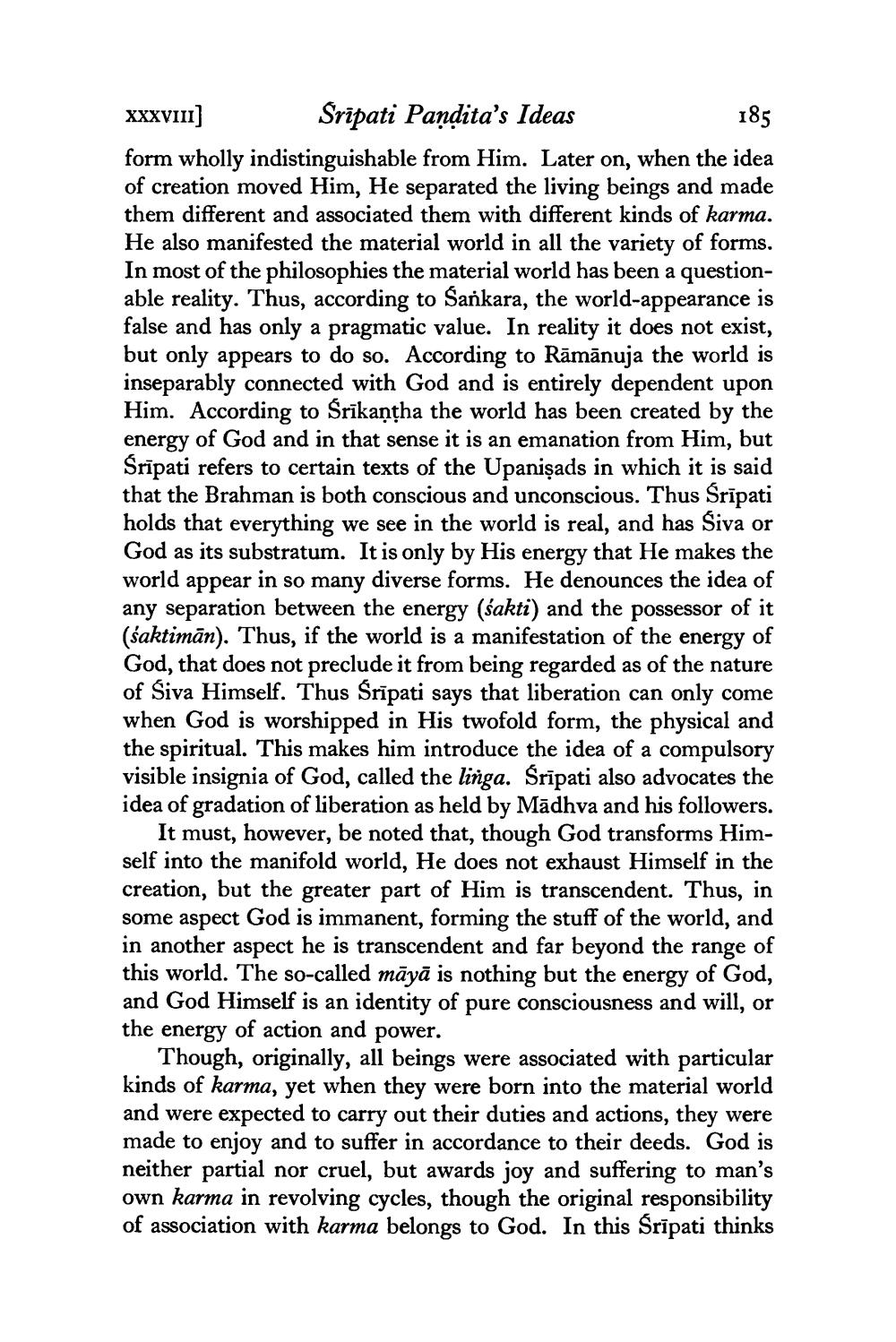________________
XXXVIII] Sripati Pandita's Ideas
185 form wholly indistinguishable from Him. Later on, when the idea of creation moved Him, He separated the living beings and made them different and associated them with different kinds of karma. He also manifested the material world in all the variety of forms. In most of the philosophies the material world has been a questionable reality. Thus, according to Sankara, the world-appearance is false and has only a pragmatic value. In reality it does not exist, but only appears to do so. According to Rāmānuja the world is inseparably connected with God and is entirely dependent upon Him. According to Śrīkantha the world has been created by the energy of God and in that sense it is an emanation from Him, but Śrīpati refers to certain texts of the Upanişads in which it is said that the Brahman is both conscious and unconscious. Thus Srīpati holds that everything we see in the world is real, and has Siva or God as its substratum. It is only by His energy that He makes the world appear in so many diverse forms. He denounces the idea of any separation between the energy (sakti) and the possessor of it (saktimän). Thus, if the world is a manifestation of the energy of God, that does not preclude it from being regarded as of the nature of Siva Himself. Thus Śrīpati says that liberation can only come when God is worshipped in His twofold form, the physical and the spiritual. This makes him introduce the idea of a compulsory visible insignia of God, called the linga. Śrīpati also advocates the idea of gradation of liberation as held by Mādhva and his followers.
It must, however, be noted that, though God transforms Himself into the manifold world, He does not exhaust Himself in the creation, but the greater part of Him is transcendent. Thus, in some aspect God is immanent, forming the stuff of the world, and in another aspect he is transcendent and far beyond the range of this world. The so-called māyā is nothing but the energy of God, and God Himself is an identity of pure consciousness and will, or the energy of action and power.
Though, originally, all beings were associated with particular kinds of karma, yet when they were born into the material world and were expected to carry out their duties and actions, they were made to enjoy and to suffer in accordance to their deeds. God is neither partial nor cruel, but awards joy and suffering to man's own karma in revolving cycles, though the original responsibility of association with karma belongs to God. In this Śrīpati thinks




